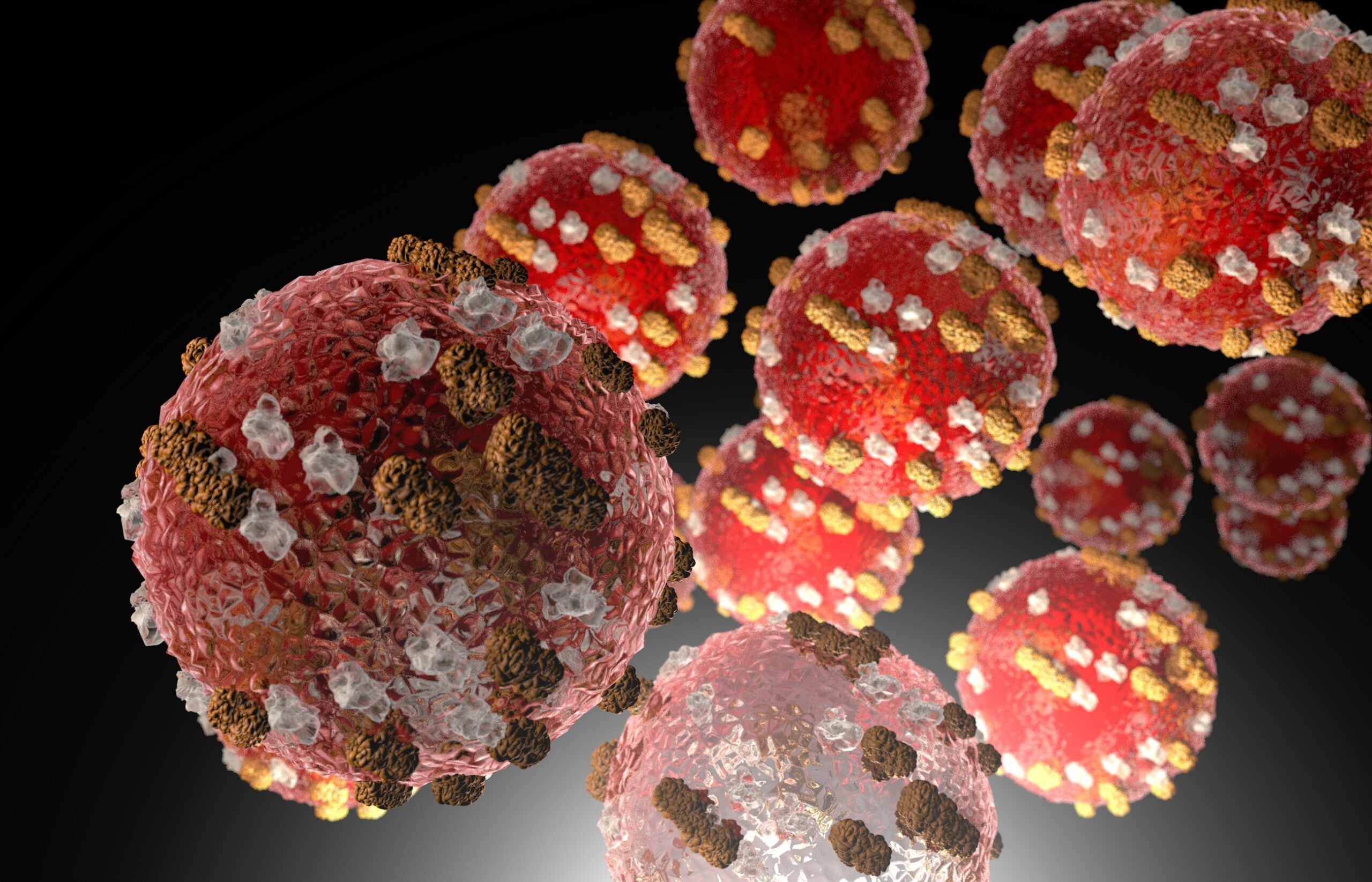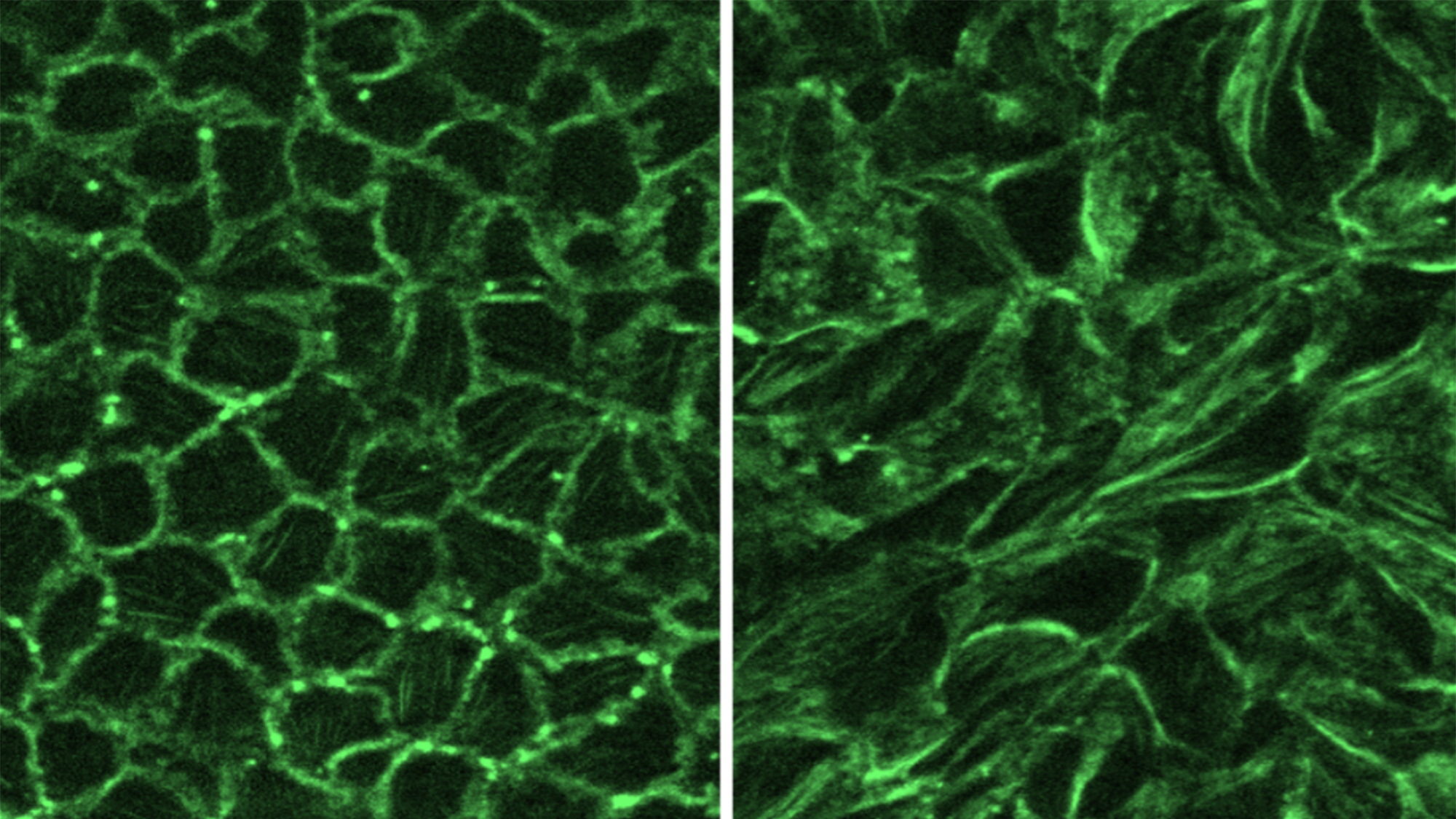Psychological distress before COVID-19 infection may increase risk of long COVID

For immediate release: September 7, 2022
Boston, MA – Psychological distress, including depression, anxiety, worry, perceived stress, and loneliness, before COVID-19 infection was associated with an increased risk of long COVID, according to researchers at Harvard T.H. Chan School of Public Health. The increased risk was independent of smoking, asthma, and other health behaviors or physical health conditions.
“We were surprised by how strongly psychological distress before a COVID-19 infection was associated with an increased risk of long COVID,” said Siwen Wang, a researcher in the Department of Nutrition at Harvard Chan School who led the study. “Distress was more strongly associated with developing long COVID than physical health risk factors such as obesity, asthma, and hypertension.”
The study was published online in JAMA Psychiatry on September 7, 2022.
According to the U.S. Centers for Disease Control, about 20% of American adults who have had COVID-19 have developed long COVID, which is defined as experiencing COVID-19-related symptoms, such as fatigue, brain fog, or respiratory, heart, neurological, or digestive symptoms, for longer than four weeks after infection. Severe COVID-19 illness increases the risk of long COVID, although people with milder COVID-19 cases can also develop long COVID. Symptoms, which can be debilitating, could last months or years, and little is known about which traits are linked to developing long COVID.
Mental health is known to affect the outcomes of some diseases. Depression and other mental illnesses have been associated with greater risk of more severe COVID-19 including the risk of hospitalization, which is a risk factor for long COVID. In other acute respiratory tract infections, such as influenza or common cold, mental health conditions are associated with greater severity and longer duration of symptoms. Previous studies have also suggested that distress is associated with chronic symptoms following Lyme disease and in chronic fatigue syndrome and fibromyalgia, which have symptoms similar to those of long COVID.
To determine the effects of psychological distress before COVID-19 infection on developing long COVID, Wang and her colleagues enrolled more than 54,000 people in April 2020. At the beginning of the study, the researchers asked the participants about their psychological distress. Over the following year, more than 3,000 participants contracted COVID-19, and the researchers asked participants about their COVID-19 symptoms and symptom duration.
After analyzing the responses and comparing those who developed long COVID to those who did not, the researchers determined that distress before COVID-19 infection, including depression, anxiety, worry, perceived stress, and loneliness, was associated with a 32%-46% increased risk of long COVID. These types of psychological distress were also associated with 15%–51% greater risk of daily life impairment due to long COVID.
“To the best of our knowledge, this is the first prospective study to show that a wide range of social and psychological factors are risk factors for long COVID and daily life impairment due to long COVID,” said Andrea Roberts, senior research scientist in the Department of Environmental Health at Harvard Chan School and senior author of the JAMA Psychiatry paper. “We need to consider psychological health in addition to physical health as risk factors of long COVID-19. These results also reinforce the need to increase public awareness of the importance of mental health and to get mental health care for people who need it, including increasing the supply of mental health clinicians and improving access to care.”
Other Harvard Chan School co-authors include Luwei Quan, Jorge Chavarro, Natalie Slopen, Laura Kubzansky, Karestan Koenen, and Marc Weisskopf.
This research was supported by the National Institutes of Health (3R01HD094725-02S1, U01HL145386, R24ES028521, U01 CA176726, R01 CA67262, and R01 HD057368); the Dean’s Fund for Scientific Advancement Acceleration Award from the Harvard T. H. Chan School of Public Health; and the Massachusetts Consortium on Pathogen Readiness Evergrande COVID-19 Response Fund Award, and the Veterans’ Administration (IIR 20-076, INV 20-099, IIR 20-101).
“Associations of Depression, Anxiety, Worry, Perceived Stress, and Loneliness Prior to Infection With Risk of Post-COVID-19 Conditions,” Siwen Wang, Luwei Quan, Jorge Chavarro, Natalie Slopen, Laura Kubzansky, Karestan Koenen, Jae Hee Kang, Marc Weisskopf, Westyn Branch-Eliman, Andrea Roberts, JAMA Psychiatry, online September 7, 2022, doi: 10.1001/jamapsychiatry.2022.2640.
Visit the Harvard Chan School website for the latest news, press releases, and multimedia offerings.
Photo: iStock
The article headline was updated on September 8.
For more information:
nrura@hsph.harvard.edu
617.221.4241
###
Harvard T.H. Chan School of Public Health brings together dedicated experts from many disciplines to educate new generations of global health leaders and produce powerful ideas that improve the lives and health of people everywhere. As a community of leading scientists, educators, and students, we work together to take innovative ideas from the laboratory to people’s lives—not only making scientific breakthroughs, but also working to change individual behaviors, public policies, and health care practices. Each year, more than 400 faculty members at Harvard Chan School teach 1,000-plus full-time students from around the world and train thousands more through online and executive education courses. Founded in 1913 as the Harvard-MIT School of Health Officers, the School is recognized as America’s oldest professional training program in public health.


